Breaking news
MAST Asia 2017: JMSDF Tested the XSSM Anti-Ship Missile against Barracuda USV-MT Target.
| 2017
|
|
|||
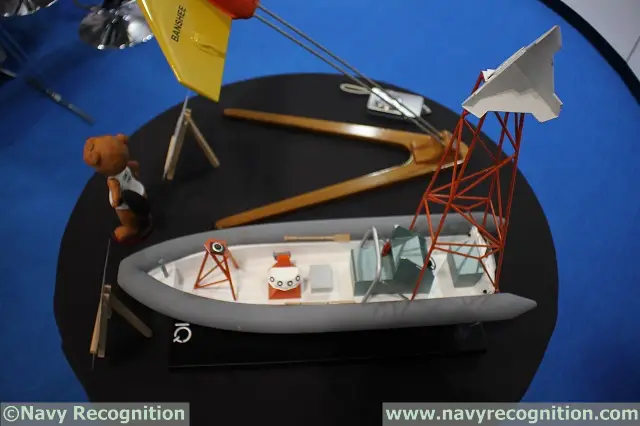 Scale model of Barracuda USV-MT on Qinetiq stand at MAST Asia 2017 Scale model of Barracuda USV-MT on Qinetiq stand at MAST Asia 2017 |
|||
|
|
|||
| The Barracuda USV-MT allows for remote control from distances greater than 10 nautical miles or can be optionally configured for over the horizon (OTH) control utilizing satellite link. A digital radio command link controls the target's course and speed, while telemetry and video signals from the target provide the operator with system performance and position information. A self-contained tracking capability is achieved using position data from the on-board GPS. In addition to the weapons performance measurement systems, the Barracuda USV-MT can be equipped with visual, radar and laser signature enhancements to present a convincing likeness to a variety of naval threats to exercise naval guns, radar and visual IR sensors for naval combat systems. The system is a proven effective surface-to-surface and air-to-ground target. Navy Recognition learned during MAST Asia 2017 that Qinetiq already delivered 10 USV-T (for gun target) to the Japan Maritime Self-Defense Force (JMSDF) and 1 USV-MT specifically for the XSSM test. The JMSDF is the first customer for the MT variant. The navies of Germany, Sweden, Australia and South Korea are existing customers of the USV-T variant. A sign on Qinetiq's stand at MAST Asia mentionned that the "Barracuda USV-MT successfully completed mission for ATLA XSSM project". Representatives from Qinetiq and ATLA at the show declined to comment on the exact date of the test. |
|||
|
|
|||
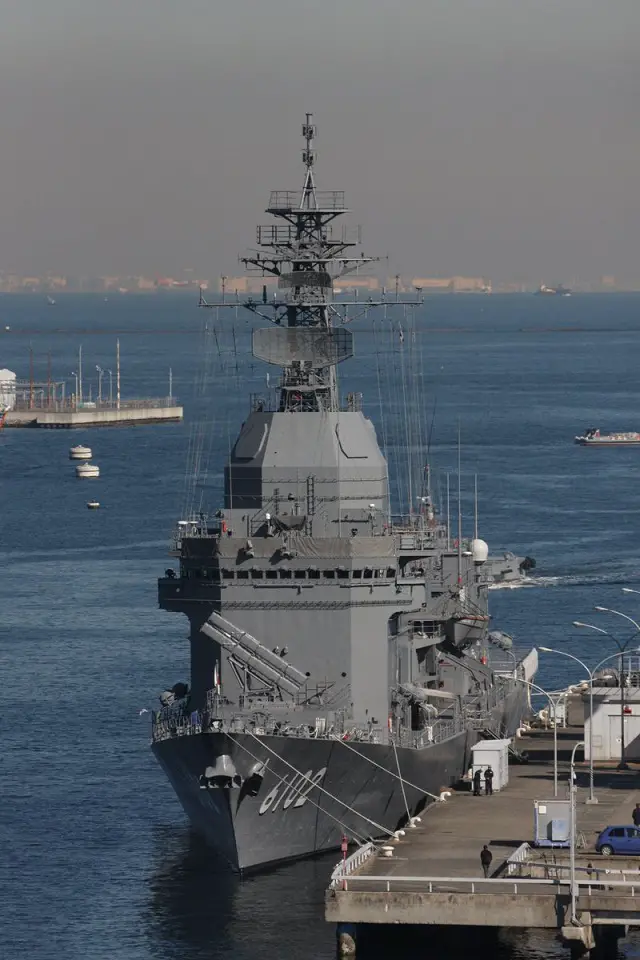 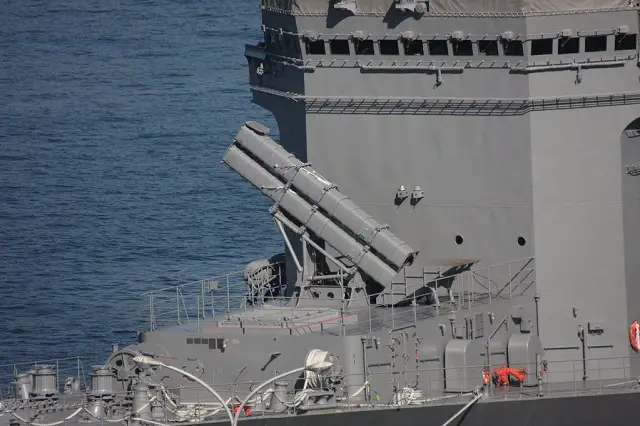 Ship spotter pictures showing JMSDF experiment ship JS Asuka coming back to base with an empty missile canister in January 2017. Thanks to きりしま/ @phantom2navy for the pictures. Ship spotter pictures showing JMSDF experiment ship JS Asuka coming back to base with an empty missile canister in January 2017. Thanks to きりしま/ @phantom2navy for the pictures. |
|||
|
|
|||
| XSSM anti-ship missile There is scarce and conflicting information about XSSM. Open sources mention that it is based on the Japan Ground Self-Defense Force (JGSDF) Type 12 truck-mounted anti-ship missile, itself based on the Type 88 (SSM-1). A Japan MoD document from 2012 mentions that XSSM is project of "low risk and cost effective anti-ship missile family". XSSM could come in several variants including air-launched and ship-launched one. In late January 2017, ship spotters took pictures of JMSDF experiment ship JS Asuka coming back to base with an empty missile canister. Japanese ship spotters believe JS Asuka took part in the XSSM test and launched the missile. |
|||
|
|
|||
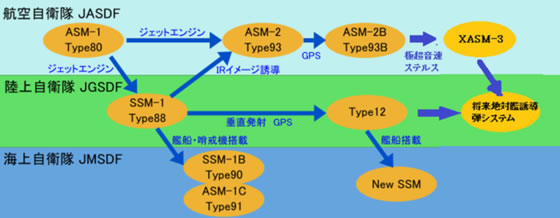 Upgrade and evolution path of Japanese anti-ship missiles. This chart hints at a convergence between XASM-3 and Type 12/XSSM developments. Image via blogs.yahoo.co.jp/ddogs38/ |
|||
|
|
|||
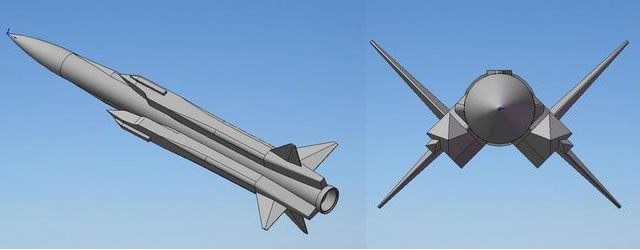 3D rendering of XASM-3. Via blog.goo.ne.jp/sekiseikai_2007. XSSM may be sharing its shape and performances. 3D rendering of XASM-3. Via blog.goo.ne.jp/sekiseikai_2007. XSSM may be sharing its shape and performances. |
|||
|
|
|||
| Talking to Navy Recognition at MAST Asia 2017, a Japan defense industry source who didn't wish to be nammed explained that XSSM shares many similarities with the XASM-3 air-launched anti-ship missile (also currently in development and which is rumored to have been recently tested), including its shape/looks and performances. XASM-3 is capable of reaching Mach 3 speeds thanks to its ramjet engine fed by two air intakes (in a similar fashion to MBDA's Meteor air to air missile of to the French ASMP-A air-launched tactical nuclear missile). XASM-3 is flying close to sea level in the final stage of attack to reduce probability of detection and intercept. XASM-3 basic specifications: Overall length: 5.25m Maximum speed: Mach 3 or more Firing range: 80nm (about 150km) or more Weight: 900kg Power: Integral Rocket Ramjet Navigation and seeker: inertial / GPS (intermediate stage) + active / passive seeker (terminal phase) The source confirmed a speed in excess of Mach 3 and range in excess of 80nm for both XSSM and XASM-3. Both missiles are currently being developped by Mitsubishi Heavy Industries. |
|||
|
|
|||
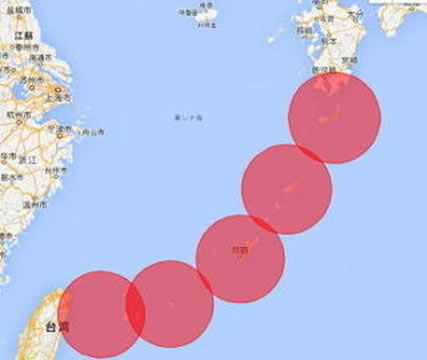 Estimated range of 5x XSSM truck-based launchers strategically located to lock down the "first island chain". Image via blogs.yahoo.co.jp/ddogs38/ |
|||
|
|
|||
| Strategic Importance of XSSM The ground launched variant of XSSM is of strategic importance to Japan as it will help its armed forces to lock down the "first island chain", from the Japanese archipelago to the island of Taiwan. This is an area of tension between Japand and China. In December 2016, the People's Liberation Army Navy (PLAN or Chinese Navy) aircraft carrier Liaoning and its escort sailed between Miyako Islands and Okinawa Island, in the Ryukyu Japanese archipelago, effectively crossing the "first island chain" and penetrating into the Western Pacific. Navy Recognition would like to thank twitter users @sdkfz1224 and @phantom2navy for their help and contribution with this article. |
|||
|
|
|||
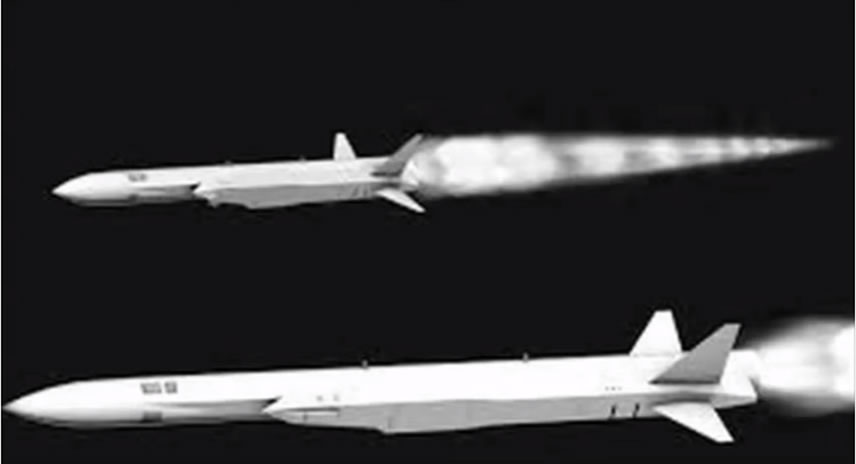 Artist impression of XASM-3 in flight Artist impression of XASM-3 in flight |
|||



























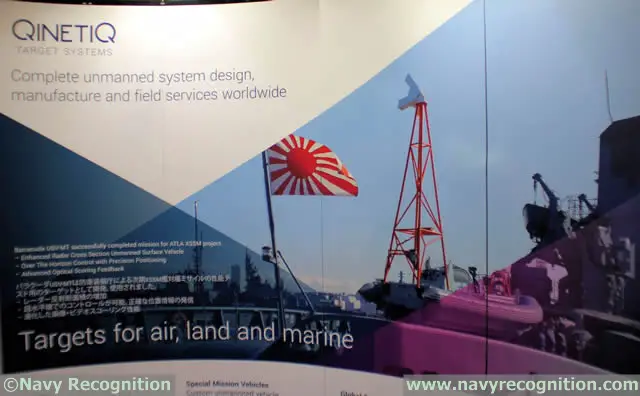 A sign on Qinetiq's stand at MAST Asia mentionned that the "Barracuda USV-MT successfully completed mission for ATLA XSSM project". The picture shows USV-MT aboard a JMSDF vessel prior to the test.
A sign on Qinetiq's stand at MAST Asia mentionned that the "Barracuda USV-MT successfully completed mission for ATLA XSSM project". The picture shows USV-MT aboard a JMSDF vessel prior to the test.